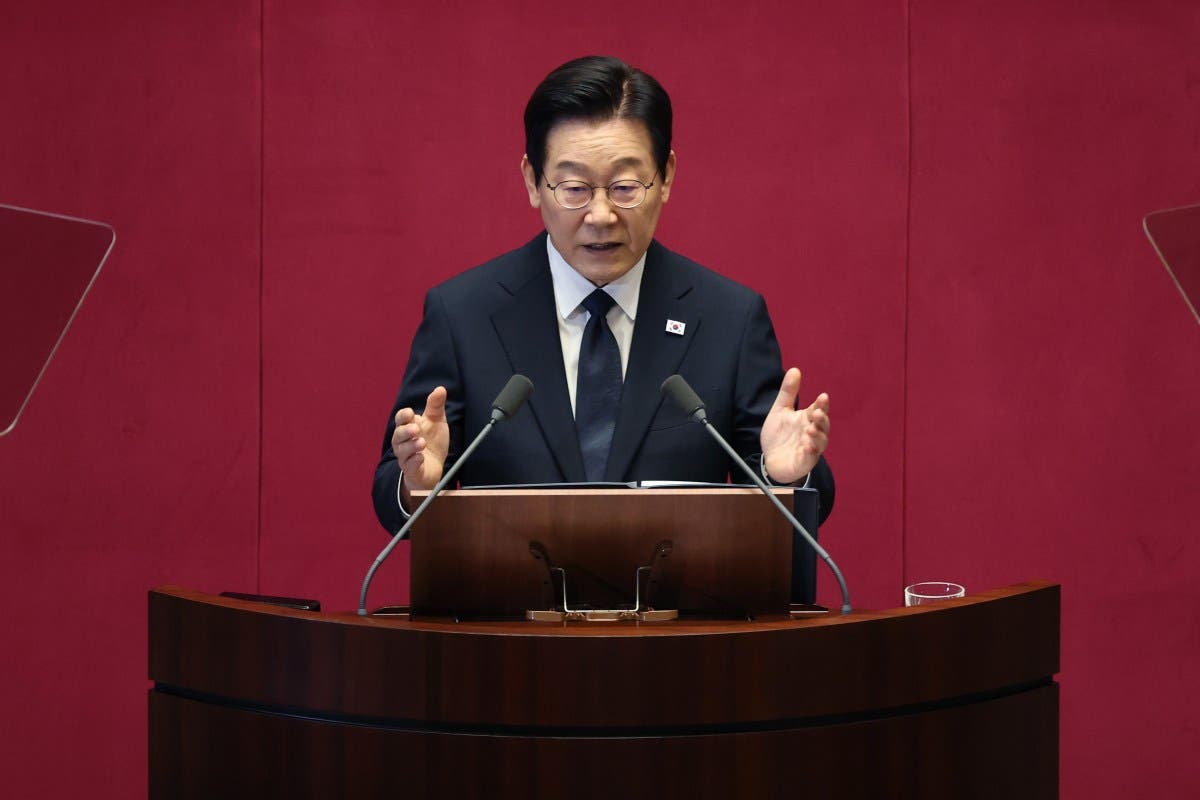Top Stories
South Korea Launches Urgent Crackdown on Online Hate Speech

URGENT UPDATE: South Korean President Lee Jae-myung has just announced a decisive crackdown on online hate speech, emphasizing that such actions “cross the boundary of freedom of expression.” This directive comes amid rising tensions and anti-foreigner sentiment in South Korea, particularly against Chinese nationals, as the nation grapples with a record influx of foreign residents.
In a Cabinet meeting on October 24, 2023, Lee voiced concerns over the rampant spread of hate speech and disinformation on social media platforms. He stated that the circulation of false information and racial hatred poses a significant threat to democracy and the daily lives of citizens. “These acts must be regarded as a crime,” Lee asserted, signaling a strong commitment to protecting social harmony.
The backdrop to this urgent initiative involves a wave of protests targeting foreign nationals, particularly in the lead-up to the recent Asia-Pacific Economic Cooperation summit in Busan. Last year, the number of foreign residents in South Korea surged to a record 2.58 million, accounting for approximately 5 percent of the total population. This demographic shift has sparked anxiety in a nation historically known for its homogeneity.
Lee’s remarks come in response to the increasing visibility of right-wing groups organizing anti-China demonstrations. In a statement reflecting these concerns, Dai Bing, the Chinese ambassador to South Korea, warned that “far-right forces” are damaging the bilateral relationship and tarnishing South Korea’s national image.
In a significant move, Lee has directed police to take a proactive role in addressing hate speech and has proposed immediate dismissal for civil servants engaging in such conduct. He emphasized that all senior officials would be held accountable under this new standard, a clear message aimed at fostering an inclusive environment.
Controversy surrounds the chair of the National Human Rights Commission, Ahn Chang-ho, who has faced backlash for his anti-LGBTQ+ remarks. Lee’s declaration that senior officials will be subject to the same scrutiny as public servants underscores a shift towards greater accountability for hate speech.
Looking ahead, South Korea remains one of the few countries in the Organization for Economic Co-operation and Development (OECD) without robust anti-discrimination legislation. Lee has expressed support for Justice Minister Jung Sung-ho in advocating for parliamentary discussions on potential laws modeled after those in Japan and Europe.
As the situation unfolds, observers are urged to monitor developments closely, particularly regarding legislative efforts aimed at establishing comprehensive protections against discrimination. Lee’s administration is poised to tackle these pressing issues head-on, marking a pivotal moment in South Korea’s approach to social justice and public discourse.
This developing situation demands immediate attention as it impacts the fabric of South Korean society. Stay tuned for the latest updates on this critical issue.
-

 Top Stories3 weeks ago
Top Stories3 weeks agoMarc Buoniconti’s Legacy: 40 Years Later, Lives Transformed
-

 Health3 weeks ago
Health3 weeks agoInnovative Surgery Restores Confidence for Breast Cancer Patients
-

 Sports4 weeks ago
Sports4 weeks agoSteve Kerr Supports Jonathan Kuminga After Ejection in Preseason Game
-

 Top Stories3 weeks ago
Top Stories3 weeks agoBOYNEXTDOOR’s Jaehyun Faces Backlash Amid BTS-TWICE Controversy
-

 Business2 weeks ago
Business2 weeks agoForeign Inflows into Japan Stocks Surge to ¥1.34 Trillion
-

 Science4 weeks ago
Science4 weeks agoChicago’s Viral ‘Rat Hole’ Likely Created by Squirrel, Study Reveals
-

 Lifestyle4 weeks ago
Lifestyle4 weeks agoKelsea Ballerini Launches ‘Burn the Baggage’ Candle with Ranger Station
-

 Entertainment4 weeks ago
Entertainment4 weeks agoZoe Saldana Advocates for James Cameron’s Avatar Documentary
-

 Politics4 weeks ago
Politics4 weeks agoDallin H. Oaks Assumes Leadership of Latter-day Saints Church
-

 Science2 weeks ago
Science2 weeks agoUniversity of Hawaiʻi Joins $25.6M AI Project to Monitor Disasters
-

 Business4 weeks ago
Business4 weeks agoTyler Technologies Set to Reveal Q3 2025 Earnings on October 22
-

 Health3 weeks ago
Health3 weeks ago13-Year-Old Hospitalized After Swallowing 100 Magnets









